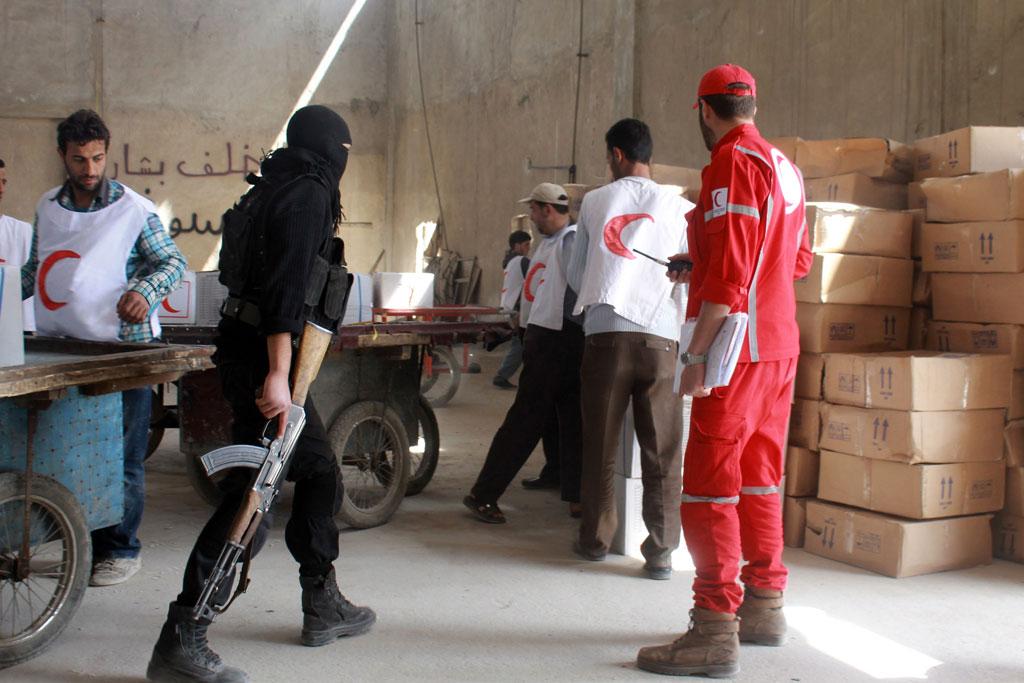UN warns drought could push millions more Syrians into hunger
A rebel fighter looks on as workers from the Syrian Red Crescent and United Nations High Commissioner for Refugees (UNHCR) – unseen – arrive with aid in the Syrian city of Aleppo, on April 8, 2014.
A looming drought in Syria could push millions more people into hunger and exacerbate a refugee crisis caused by years of civil war, the United Nations said on Tuesday.
Syria's breadbasket northwestern region has received less than half of the average rainfall since September and, if it stays dry up to wheat harvest time in mid-May, the country — already reliant on aid for millions of people — will need to import even more food.
"A drought could put the lives of millions more people at risk," Elisabeth Byrs, spokeswoman for the UN aid agency World Food Program (WFP), told a news briefing.
Based on rainfall data and satellite images, and with the smallest area planted with wheat in 15 years, output of the cereal is likely to be a record low of between 1.7 million and 2 million tons, as much as 29 percent less than last year and about half of pre-conflict levels, the WFP said.
Barley and livestock production are also being hit.
In addition to the worst drought since 2008, three years of civil war have ravaged infrastructure, leaving long-term damage to irrigation due to damaged pumps and canals, power failures and a lack of spare parts, the agency said.
This will have "long-lasting effects on Syria's agricultural production" even after peace is restored, it said.
The threat posed by drought meant the number of Syrians in need of emergency rations could rise to 6.5 million, up from 4.2 million now, Byrs said.
The WFP, which reached a record 4.1 million people with rations in March, said on Monday that it had to cut the size of food parcels to hungry Syrians due to a shortage of funds from donors.
WFP, which feeds hungry people around the world, says the operation in Syria is its biggest and most complex, costing more than $40 million a week.
The funding figure includes the feeding of 1.5 million of the 2.6 million registered Syrian refugees who have fled to neighboring countries, mainly Turkey, Lebanon, Jordan and Iraq.
"We can expect more refugees to leave if on top of the conflict they feel that their lives are in danger because there is no food. But it's hard to say obviously because they could also move to other parts of Syria," Fatoumata Lejeune-Kaba, spokeswoman of the UN refugee agency, told reporters.
Overall, the United Nations has received just 16 percent of the $2.2 billion sought for its aid operations inside Syria this year, with the United States the largest donor at $108 million, followed by the European Commission at $53.7 million and the United Arab Emirates at $50 million.
(Editing by Robin Pomeroy)
We want to hear your feedback so we can keep improving our website, theworld.org. Please fill out this quick survey and let us know your thoughts (your answers will be anonymous). Thanks for your time!
